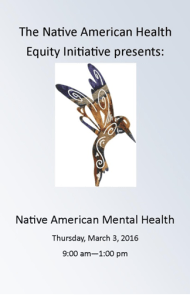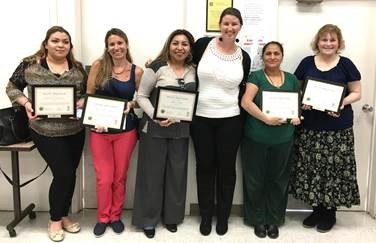Reflecting on Culture in the Workplace

We are so blessed to be surrounded by a multitude of cultures, thoughts, and perspectives within our workplace. Every day we have opportunities to connect and effectively communicate when others are willing to share, and we are willing to listen. Overall, our workplace can be a great place to celebrate our cultures coming together. Here are some examples of how we can celebrate culture in the workplace!
Connection: As we continue sharing stories, experiences, and learn similarities among each other, we can connect on different levels which fosters growth within our workforce and trust within the communities we serve. For example, many cultures place heavy importance on family, particularly elders which may guide decision making. Furthermore, at times, especially when the events of the world feel darker and our hearts feel heavy, connections help draw us back to each other and to the challenges that we can only overcome together. These struggles remind us of the fragility of humanity and that work, though seemingly an isolated space, is still yet another environment where we can potentially grow and heal with others.
Communication: Communication has always been key to increased understanding, but the key to communication can differ depending on the individual and their culture. Learning about the values of our teammates and the way they work can be vital in our efforts to collaborate, achieve work goals and overcome challenges. For example, within BHRS’ Office of Diversity & Equity, our team’s simple but important discussion of love languages helps us support each other more effectively. This deeper understanding gives insight about how to lift one another up. In turn, the creation of these environments allows for a better space to be productive and progressive.
Celebration: Culture is such a great thing to celebrate! From the preservation of language, art, holidays, to traditions, our workforce represents such a range of exciting backgrounds. Each lens reflects the hearts of the individuals within our workforce and the unique perspectives that we can access as we evolve our approaches to care.
My hope is that we continue to embrace culture within the workplace, ask questions and celebrate the beauty of our melding cultures!
Written by Irene Pham (she/her), BHRS Office of Diversity & Equity Workforce Education & Training (WET) Training Coordinator




 The Office of Diversity and Equity (ODE) is excited to announce two new job and internship opportunities. ODE advances health equity in behavioral health outcomes of marginalized communities throughout San Mateo County. ODE works to empower communities; influence policy and system changes; develop strategic and meaningful partnerships; and promote workforce development and transformation within BHRS.
The Office of Diversity and Equity (ODE) is excited to announce two new job and internship opportunities. ODE advances health equity in behavioral health outcomes of marginalized communities throughout San Mateo County. ODE works to empower communities; influence policy and system changes; develop strategic and meaningful partnerships; and promote workforce development and transformation within BHRS. 







You must be logged in to post a comment.